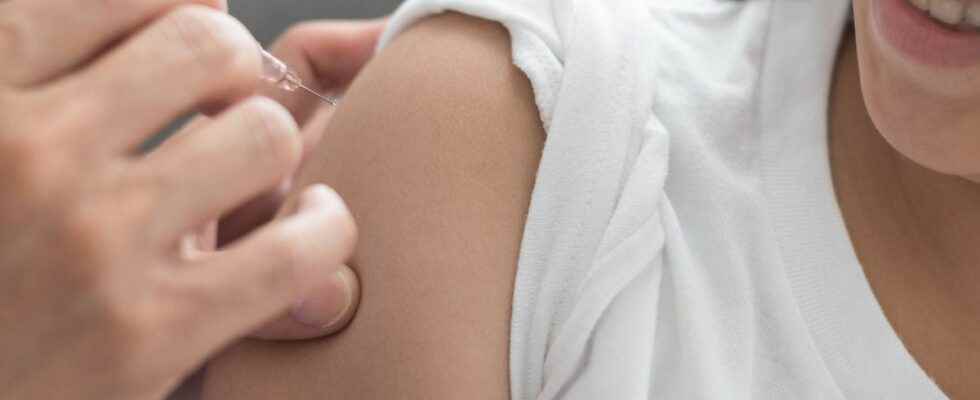Posted ,
Reading 3 mins.
The WHO announced on Monday that young women under the age of 21 could benefit from a single dose of the cervical cancer vaccine, instead of two. This advance could save lives because it would allow a greater number of young girls to access this vaccine.
“A single dose of HPV vaccine is sufficient for women under 21”, announced the World Health Organization (WHO) on Monday April 11 in a press release. However, it will be necessary to keep the current schedule, of two doses six months apart, for women over 21 and immunocompromised people.
A cancer of “unequal access”
HPV causes cervical cancer, which “kills a woman every two minutes in the world”, according to the WHO. The human papillomavirus (HPV) or papillomavirus is sexually transmitted most of the time.
HPV infections are also linked to other types of cancers: vagina, vulva, penis and oropharyngeal cancers (throat, tongue and tonsils).
According to the WHO, cervical cancer is the fourth most common type of cancer in women worldwide. It is also a powerful marker of inequality since 90% of infected women live “in low- and middle-income countries”.
Most deaths occur in Africa, which bears “80% of the burden of cervical cancer”, according to the WHO press release. But due to the cost and limited supply of vaccines, coverage is low in areas where cervical cancer is most prevalent.
Currently, only 15% of women in the world are vaccinated against the papillomavirus.
A concrete goal
A controlled trial, the results of which were published in the journal NEJM Evidence Monday, April 11, was conducted among 2,275 women in Kenya. He proved that a single dose of the human papillomavirus vaccine was “very effective”, since it had the same effectiveness as with two doses.
Ruanne Barnabas, principal investigator of the trial, said that “the results of the trial could help the WHO reach its goal of having 90% of 15-year-old girls vaccinated against HPV by 2030”. Princess Nothemba (Nono) Simelela, Assistant Director General of WHO joined Barnabas in her report.
These results “make single-dose HPV vaccination a high-value, high-impact public health intervention that is within our reach”said Professor Sam Kariuki, acting director general of theKenya Medical Research Institutewhere the trial was conducted.
This study is good news because it could thus increase accessibility to public health in low- and middle-income countries.
Consult an oncologist online
The need for political commitment from countries
According to the WHO, cervical cancer is “almost entirely avoidable” through vaccination. For this, it is necessary that each country commits to participate in the prevention against cancer of the cervix, sensitization and the administration of the vaccine.
Princess Nothemba (Nono) Simelela, WHO Assistant Director General, said on Monday: “We need political commitment complemented by equitable pathways for HPV vaccine accessibility. Failure to do so is an injustice to the generation of girls and young women at risk of cervical cancer. ‘uterus” .
The WHO has urged all countries to introduce the HPV vaccine and to “prioritize catching up with missed and older girl cohorts”.
The institution did not hesitate to list the advantages of this discovery: “The single-dose option of the vaccine is less expensive, less resource-intensive and easier to administer. It facilitates the implementation of catch-up campaigns for several age groups, reduces the difficulties associated with finding girls for their second dose and allows the redirection of financial and human resources towards other health priorities”.
The WHO statement is therefore a beacon of hope for the health of millions of young women: “These recommendations will allow more girls and women to be vaccinated and thus avoid having cervical cancer and all its consequences during their lifetime”.
The chairman of the WHO committee, Dr. Alejandro Cravioto, made it clear that women over 21 will still need “two doses, six months apart”. Same for the “immunocompromised people, mainly people with HIV” to whom it can even be recommended the administration “at least two, or even three doses, so that they are completely immunized”.
